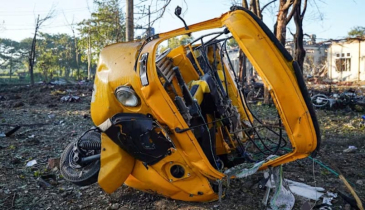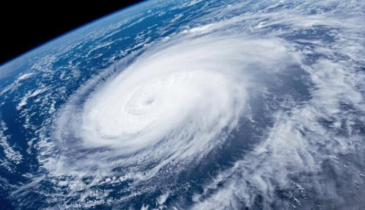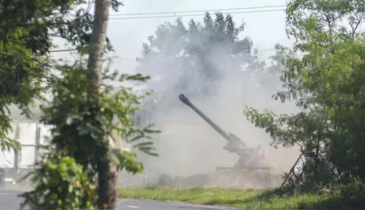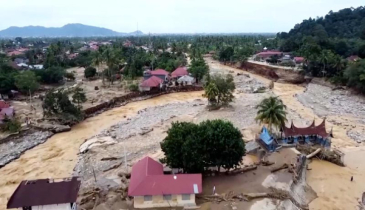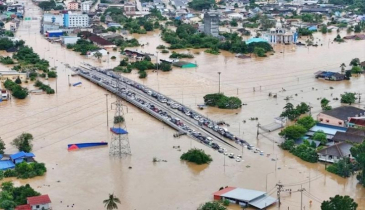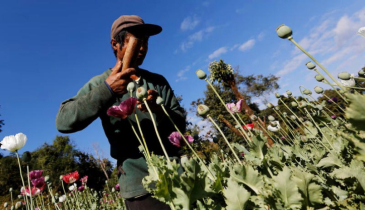Myanmar's Arakan Army oppresses Rohingya Muslims: HRW
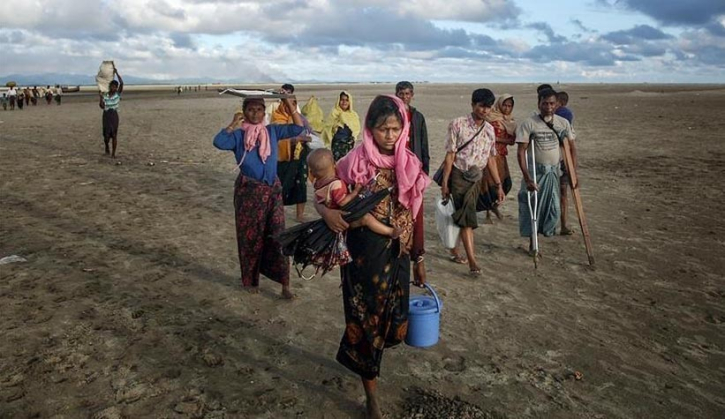
The Arakan Army (AA), an ethnic armed group in Myanmar's western Rakhine State, has imposed severe restrictions and committed grave abuses against the ethnic Rohingya population, Human Rights Watch (HRW) said.
According to the New York-based rights watchdog, the Arakan Army’s rapid territorial expansion since renewed clashes with Myanmar’s military junta in late 2023 has been accompanied by a harsh regime of restrictions on movement, arbitrary detentions, forced labor, extortion, and forced recruitment of Rohingya men and boys.
These abuses, HRW said, mirror the oppressive policies long practiced by Myanmar’s military, which has been accused of genocide and crimes against humanity against the Rohingya since 2017.
“The Arakan Army is adopting the same discriminatory policies and abusive tactics that the Myanmar military used to entrench decades of oppression against the Rohingya,” said Elaine Pearson, Asia Director at HRW. “The group must immediately end these practices and respect international human rights law.”
The Arakan Army, along with its political wing, the United League of Arakan (ULA), had pledged equitable and inclusive governance in areas wrested from Myanmar’s junta. However, testimony from refugees paints a different picture: Rohingya living under AA control describe an atmosphere of fear, heavy restrictions on travel, bans on fishing and farming, confiscation of farmland and livestock, and a system of extortion that has crippled livelihoods.
From April to July 2025, HRW interviewed 12 Rohingya refugees who fled from Buthidaung Township in northern Rakhine State to Bangladesh. Many reported extreme food shortages, restrictions on humanitarian aid, and widespread harassment.
A 62-year-old refugee who arrived in Bangladesh in June told HRW, “Life under the Arakan Army was suffocating. We needed permits to even move between villages, work in fields, or fish. There were days when people survived by begging because food was impossible to find.”
Permits to travel between villages often cost 3,000–5,000 kyat (US$1.40–$2.40) and were valid for only one day, villagers said. Travel without such permits risked arrest and disappearance. Curfews imposed by the AA added to the sense of constant surveillance and fear.
Rohingya civilians have been trapped between two warring forces—the Myanmar military and the Arakan Army—both accused of committing atrocities such as extrajudicial killings, mass arson attacks, and unlawful recruitment. Renewed fighting has displaced more than 400,000 people across Rakhine and Chin states since late 2023, with over 200,000 fleeing into Bangladesh, where camps are already overcrowded and underfunded.
The situation has been further complicated by clashes between the Arakan Army and the Arakan Rohingya Salvation Army (ARSA), a Rohingya armed group, which had previously fought alongside Myanmar’s military in 2024. Communal tensions between the majority Buddhist Rakhine population and the Muslim Rohingya have sharply worsened, fueled by AA accusations that some Rohingya are collaborating with ARSA or junta forces.
A 35-year-old Rohingya man from Keya Zinga Para recounted being arrested by the AA on allegations of military collaboration:
“They accused me of working with the army and beat me with bamboo sticks until I couldn’t walk properly. I was detained in Buthidaung town for weeks without charge.”
The AA’s restrictions on farming, fishing, and livestock ownership have devastated local economies, leading to widespread hunger. Many families now rely on remittances from relatives abroad or resort to begging for survival. Humanitarian aid delivery has been severely restricted due to a junta blockade in place since late 2023. In one particularly cruel act, villagers reported that the AA even demolished cemeteries, forcing families to bury their dead in paddy fields.
Bangladesh has recorded 120,000 new arrivals in refugee camps since May 2024, and humanitarian agencies fear tens of thousands more remain unregistered. Aid groups warn that the crisis could worsen if fighting intensifies or if the AA tightens restrictions further.
.png)


